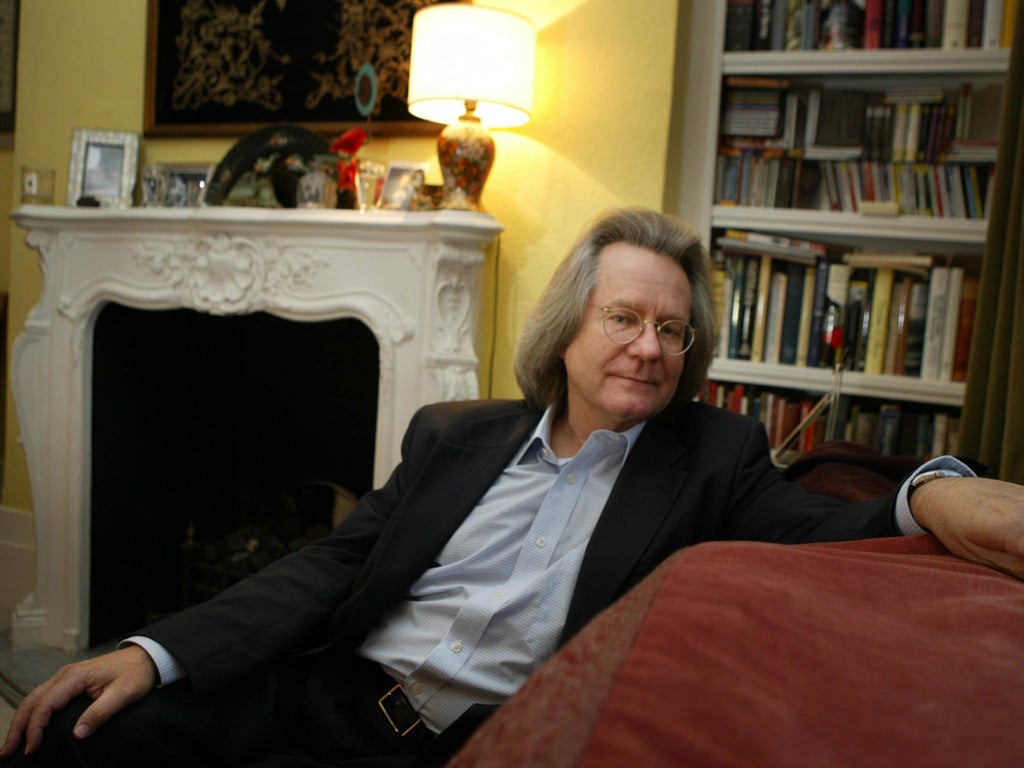State schools miss out on Grayling's 'elite' university
The first intake for the £18,000-a-year college is weighted heavily towards independent schools

Your support helps us to tell the story
From reproductive rights to climate change to Big Tech, The Independent is on the ground when the story is developing. Whether it's investigating the financials of Elon Musk's pro-Trump PAC or producing our latest documentary, 'The A Word', which shines a light on the American women fighting for reproductive rights, we know how important it is to parse out the facts from the messaging.
At such a critical moment in US history, we need reporters on the ground. Your donation allows us to keep sending journalists to speak to both sides of the story.
The Independent is trusted by Americans across the entire political spectrum. And unlike many other quality news outlets, we choose not to lock Americans out of our reporting and analysis with paywalls. We believe quality journalism should be available to everyone, paid for by those who can afford it.
Your support makes all the difference.When Professor AC Grayling announced plans to open a private university in London, complete with celebrity lecturers and fees of £18,000 a year, he was subjected to vitriolic responses from students and academics alike.
Now, a look behind the door of the New College of the Humanities has revealed an unashamedly "elitist" institution that will specifically target students who failed to get a place at Oxford or Cambridge.
Recruitment figures for the new university, released for the first time yesterday, showed that only 22 per cent of those offered a place were from state schools. That compares with just under 60 per cent at Britain's most selective public universities.
Professor Grayling said he did not reject the epithet "elitist", arguing: "If you are being treated by a consultant or in the hands of an airline pilot, would you not want them to have been trained at an elitist institution? We are elitist, not exclusive."
About 30 guest – or "celebrity" – lecturers will deliver 110 lectures a year (80 in the first year) at the new institution in Bloomsbury, central London. They include Professor Richard Dawkins, who will lecture on evolutionary biology and science literacy, and the TV historian Niall Ferguson.
Professor Grayling also baulked at the suggestion that fees at his college – which will offer its students degrees from the University of London – were excessive. He predicted that the current £9,000 a year cap on tuition costs would soon rise, saying it was "nowhere near" what universities needed to charge to cover their expenditure. "Our fee is going to look very ordinary in a few years time," he said.
Professor Grayling, a philosophy don and one Britain's best-known intellectuals, acknowledged that his target audience consisted of students who had the necessary qualifications and talent to get into Oxford or Cambridge but had failed to secure a place.
"At Oxford, there are over 17,000 applications – of which 12,000 get interviewed and 3,500 are offered places," he said. "There are very, very good people out there who will benefit from what we have to offer here – people who generally come from that constituency."
In all, 91 offers have been made to students starting this September, of whom 47 will pay full fees; 37 have been offered "exhibitions" and will pay £2,400 a year, while seven have been offered full scholarships, meaning they will receive their tuition free.
The 91 were selected from 350 applicants. Of those offered places, 66 per cent were from independent schools, 8 per cent were not directly from schools (including some wanting to switch from other universities) and 4 per cent were mature students.
The college will be offering a second tranche of places in June. The overall intake in September would be "no more than 180 to 200", Professor Grayling said. It will eventually build up to 1,000 students. The college has had particular success in recruiting students from academy schools. NCH staff have visited 130 secondary schools since September to encourage pupils to apply – 21 per cent of which were state schools, mostly selective grammars or academies.
Join our commenting forum
Join thought-provoking conversations, follow other Independent readers and see their replies
0Comments